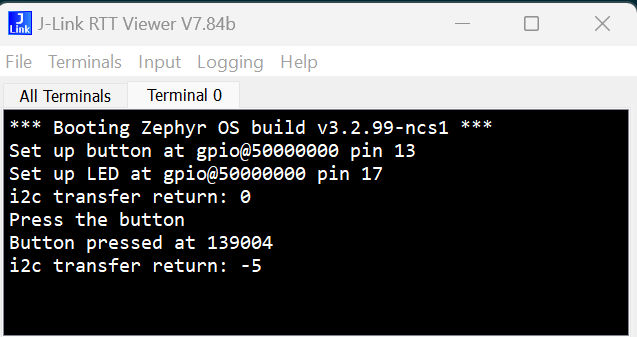Dev tools:
HW: nRF52DK_52832 (& LTC DC1697A)
SDK: v2.2.0
The problem:
The I2C transfer function doesn't work as expected within a callback.
Steps to reproduce:
1. Starting a new project with the zephyr button example
2. Adding RTT support to the config and setting it as console
3. Adding I2C to the config and including the lib
4. Adding my personal i2c_transfer snippets towards the end of the main function and in the button callback function
5. The slave device on the I2C 0 bus is a devkit for a power monitoring by LTC model DC1697A
prj.conf
main.c
RTT:

The good transfer from the snippet at the end of the main function:

The bad transfer from the snippet at the end of the callback function:

I would like technical advice on why the callback implementation doesn't work and how to solve it.
project zip:
